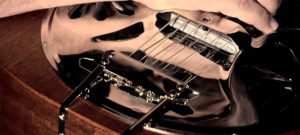 She would be much a woman, quite able to express her thoughts and feelings. (“Tall is good. I like tall.”) She’d be able to talk about herself in favorable terms (“I’m not the kind that sleeps around.”) Most of all, she would ask the right questions.
She would be much a woman, quite able to express her thoughts and feelings. (“Tall is good. I like tall.”) She’d be able to talk about herself in favorable terms (“I’m not the kind that sleeps around.”) Most of all, she would ask the right questions.
“How about a drink? On the house.”
“That would be lovely. I was hoping for a chance to talk.”
“What’ll it be? Gin and tonic maybe?”
“Perfect. Beefeater’s, if you have it”
“You looked like you were enjoying yourself up there. Is it really that much fun to play guitar?”
“Most of the time. This is pretty much an ideal gig for me. All three of us are songwriters, so there’s never a shortage of new material. And we keep getting better, knock on wood.”
“There you go. Did you grow up here in Colorado?”
“Houston, actually. My parents both worked for NASA. They wanted me to be a rocket scientist, or a doctor at least, but once I heard Chuck Berry I never looked back.”
“Is music any way to make a living?”
“Not unless you get lucky and write some decent songs. I count on those royalty checks.”
“Tell me about your guitar. What’s that shiny thing?”
“Oh boy. You ask a lot of questions.”
“Can’t help it. It’s what bartenders do, and I write for the Denver Post as a day job. So, tell me about the guitar.”
“Cheers, and thanks. As a reporter, you’ll want the facts: I’ve owned and played a lot of guitars, but this one is special. She’s known as the Boxcar Model, made by Gretsch. That’s the company that built instruments for Chet Atkins, among others.
“The ‘shiny thing’ you asked about is a decorative cover plate protecting the circular resonator cone located inside the body of the guitar. That’s where things get interesting. If you peek in there you’ll see a spun aluminum device that reflects the sound made when you strike the strings and sends it back toward the audience, only louder.”
“Hmmm. Sort of a mechanical amplification system instead of electronic?”
“Exactly. The resonator was invented in the 1920’s by two brothers in California, Ed and Rudy Dopyera. They patented the device with a trademark based on their names, and called it ‘Dobro’, which is a Slavic word that translates as ‘excellent.’
“The company made and sold resonators for mandolins, banjos, even bass fiddles. There were complete orchestras of resonator equipped instruments. Then the electric guitar was invented and everything changed. Any more questions?”
Harpeth Rivers is a writer, musician and happy homeowner still living and working in New Mexico. Check out his latest book, Proof, an illustrated fable, on Amazon.